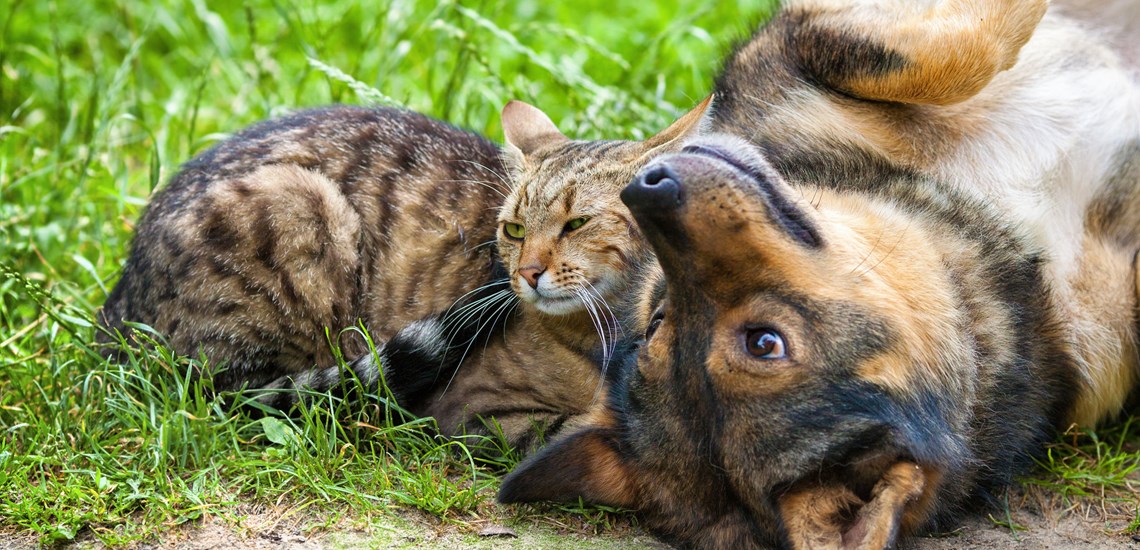Does your cat's bad breath keep the two of you from snuggling? Do you wish you could give your dog a breath mint? Contrary to popular belief, "doggy breath" is not normal. In fact, it could be one of the first signs that your furry pal is developing dental disease.
What is dental disease?
1. Dental disease begins early in life. By the age of three, most dogs and cats have some degree of dental disease. The early signs of dental disease in pets include bad breath, yellow tartar buildup on the teeth, and red and swollen gums. If left untreated, it will progress to cause chronic pain and inflammation. We recommend dental evaluations as part of your pet's regular preventive care exam, which should take place at least once a year.
2. Dental disease causes significant, chronic pain in pets. Animals are experts at hiding signs of pain, so the pain may go unnoticed by you. Instead, you may see that your pet is increasingly irritable and lethargic and has a decresed appetite - changes you may attribute to your pet's advancing age or other lifestyle factors. But after a proper and thorough dental procedure, many pet owners report the emergence of "a whole new pet" - one who is happier and more active.
3. X-rays are essential for diagnosing dental disease. After examining dental radiographs (x-rays) of cat and dogs with teeth that appeared normal to the naked eye, veterinarians found 27.8% of dogs and 41.7% of cats had diseased teeth. In pets with abnormal-looking teeth, veterinarians found additional diseased teeth in 50% of dogs and 53% cats.
4. Anesthesia makes dental evaluation and treatment safer and less stressful for your pet. Animals don't like to hold still while x-rays are taken and sharp instruments are used to clean their teeth. Placing your pet under anesthesia during the procedure allows us to make a more accurate diagnosis and decrease the chance of complications.
5. Anesthesia is much safer than you may think. Before anesthesia, your pet will be carefully screened with bloodwork and during the dental procedure a trained professional will be dedicated to continuously monitoring, recording vital signs, and communicating the findings to the veterinarian.
6. Nonanesthetic dentistry is stressful, unsafe, and ineffective. Without anesthesia it is impossible to obtain x-rays to see what lies beneath your pet's gumline. It is also impossible to safely and effectively clean the teeth using those sharp instruments while the pet is awake.
7. Removing plaque from teeth beneath the gumline is vital. In fact, it's even more important than scaling the portion of the teeth we can see. Bacteria thrive under the gumline, causing infections deep in the tooth root and jaw that can spread throughout the body and affect other organs, such as the heart and kidneys.
8. Your veterinarian will create a personalised pain protocol to keep your pet comfortable.
9. Homecare is an essential part of taking care of your pet's oral health. A variety of products are available and the best choice for your pet can be discussed with out vets.
10. Not all pet dental products are created equal. If you aren't able to brush your pet's teeth as often as you'd like, consider using other dental products designed to help maintain your pet's oral hygiene.










